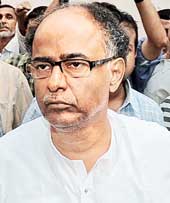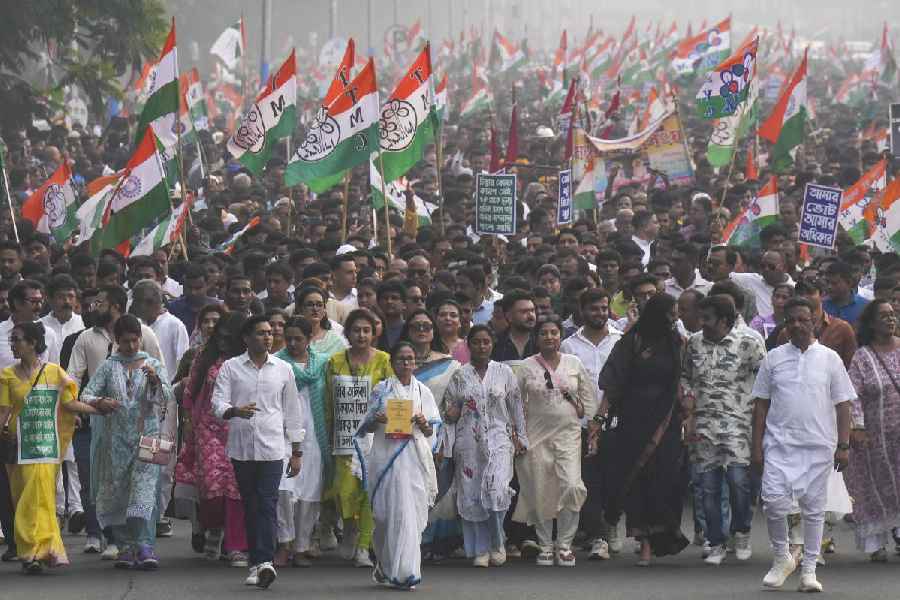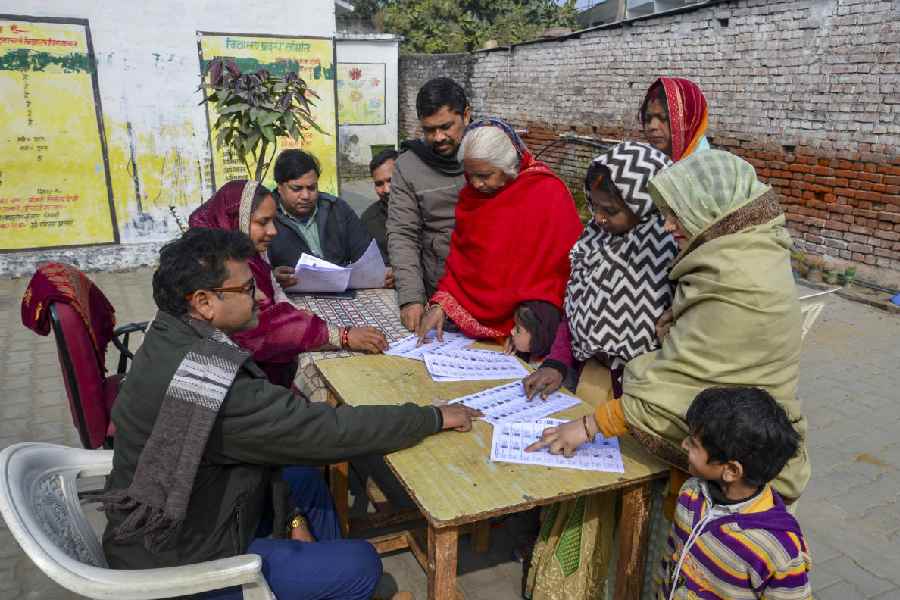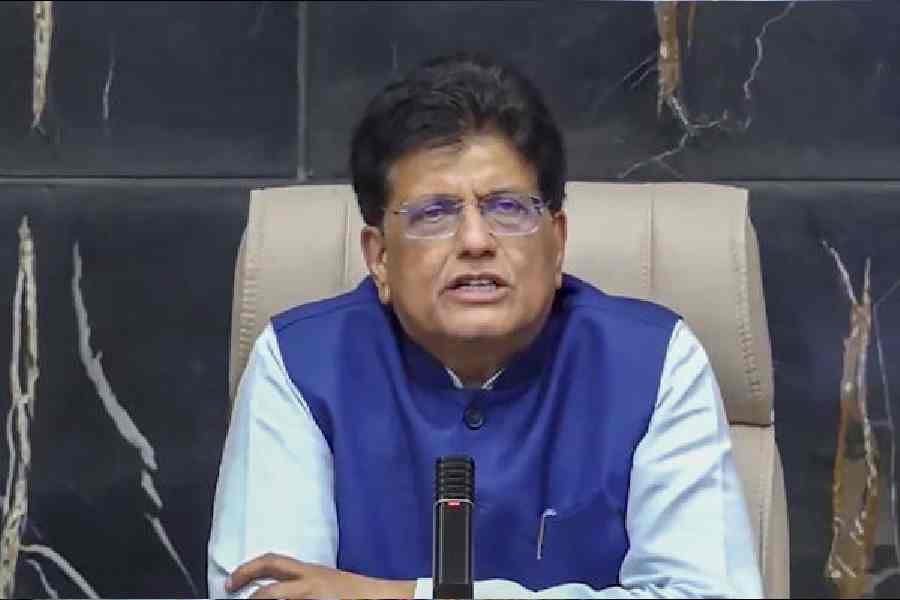 |
 |
| Debshankar Haldar in Aurangzeb (top) and Madhabi |
A weeklong theatre festival to showcase the works of actor Debshankar Haldar begins on Friday, marking several firsts on the Bengali stage.
Nine plays will be put up by eight groups during the festival at the Academy of Fine Arts in an honour never before bestowed on any theatre actor or director. In all of them Haldar plays the lead role.
The 44-year-old actor, who has taken part in over 15 plays in the past eight years, said: “I was touched by the kind of love and respect it offers me. So many people coming together around me to do something of this magnitude for me is an honour and a humbling experience.”
The last time several Calcutta groups, famous for their fractiousness, had similarly joined hands was three decades ago. They had gathered around the late Sombhu Mitra to stage Bertolt Brecht’s The Life of Galileo and that, too, briefly before being torn apart by conflicts within.
Haldar is in distinguished company. The motive this time, however, is vastly different. Apart from holding a festival of plays to pay tribute to his career that began in Nandikar in the late Eighties, the organisers intend to hand over a nest egg with the intent of helping him score bigger achievements.
Film-maker Gautam Halder, one of the organisers, said: “It’s a small token of appreciation for his contribution to theatre.”
 |
| Picture: Anindya Shankar Ray |
Never before has such a grand gesture been made by Calcutta groups to an actor or director in the high noon of his career. Rewards and awards are the known preserve of governments, which usually do not part with them so long as one can walk without help.
Rudraprasad Sengupta, under whom Debshankar started in Nandikar, saw the reflection of a past practice in the concept. “It’s the revival of the benefit-night culture of yore. But the way it is being organised is certainly fresh and exciting,” he said.
He and his contemporary, Bibhas Chakraborty, like him an actor as well as a director, agreed on Debshankar being the most deserving of his generation to qualify for the honour. It’s another matter that when they were 30 years younger, no one thought of similarly honouring them.
“If any of the young Turks deserves to be at the centre of such an endeavour, it’s Debshankar,” Chakraborty said. “I am amazed at the way he has taken participation in group theatre to a professional level.”
Unlike the previous generation of artistes, Debshankar has no other occupation but theatre. Which, of course, means he and his family are dependent on what he earns from it, and from television. He is a theatre professional in the full sense of the term whereas his predecessors have usually held down a job, though their mind and time have been dedicated to the stage.
Perhaps, this would not have been possible had he not had the opportunity to work for more than the mother group — in this case, Nandikar. His rise — and that of a handful of others — is a trendsetter in that they have broken from the past of being loyal to just one group.
Debshankar, whose father Abhay Haldar was a well-known jatra actor, said: “Outside Nandikar my journey began with Winkle Twinkle (a successful play written by Bratya Basu and directed by Debesh Chattopadhyay) in 2002 and I’ve certainly come a distance. This festival will also trace my journey as an artiste.”
Aurangzeb, Missed Call, Kachher Manush and Ruddha Sangeet are some of the other plays in which his performances have been critically acclaimed. All will be staged during the festival.
“Many of my contemporaries can offer a similar repertoire of work. If this is the beginning of a trend, it will be great for theatre,” said Debshankar.
Sengupta, however, was not so enthusiastic about the concept being repeated over and over again. “If this does become a trend, there is bound to be a decline in quality and scale.”










